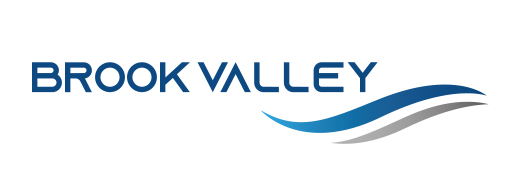
Excellent education according to the European model, nevertheless so far barely a relevant IT-partner for German companies.
A professional IT and digital scene has developed in Johannesburg and Cape Town, with close connections to companies in the UK as well as the USA. For Germany, South Africa is a white spot as an IT sourcing market. In an interview with Melina Brandstetter, Managing Partner of Brook Valley, Rob Godlonton, co-founder and CEO of the South African systems and solutions integrator +OneX in Johannesburg, explains how the IT market is structured and what German companies should know about the chances in engaging with this market.
Melina Brandstetter: So far, South Africa has not been a significant market for German companies to work with their digital experts or developers – for example due to outsourcing or joint ventures. Rob, what are the Germans actually missing out on?
Rob Godlonton: The IT market in South Africa is highly developed and globalized. We have clients in the UK, USA and the Netherlands, partly due to South Africa’s colonial past and its high levels of English language proficiency. But it is not just the case that Germany is missing out on the South African IT market; we are also missing an interesting and relevant market with which we would like to cooperate. There are many very good reasons to work together: cultural proximity, entrepreneurial spirit, a shared time zone, a European-oriented education system and the excellent talent that this system produces, to name just a few points.
Melina Brandstetter: That sounds conclusive. But then I ask myself -why is that? What do you think?
Rob Godlonton: I can’t really say. It is not because German companies are not active in South Africa. There are plenty. But the interweaving of the IT and digital scene hasn’t happened yet. The lines between systems integration, marketing creativity and media buying are blurring as companies become more data-driven in their customer engagements. There is potential for German and South African companies to cooperate around this full set of services. However, geopolitical developments combined with a shortage of skilled workers, especially in the IT and digital sector, will almost certainly ensure German companies recognise the opportunities in South Africa. Other European economic powers such as France or Italy are also not connected to our scene. I believe this presents a great opportunity for Germany.
Melina Brandstetter: What can the IT and digital scene offer to German clients? What is the degree of professionalisation today?
Rob Godlonton: What many people outside South Africa don’t know is that we have some of the best technical universities in the world, which are consistently on par with top American universities in the relevant rankings—for example, the universities of Stellenbosch, Cape Town and Johannesburg. The latter two cities are also where the digital scene is happening today – led by Johannesburg. Our students are thus connected to the scene at a very early stage and can now enter their first professional engagement relatively seamlessly. We are also seeing a marked increase in the fight for talent. In terms of quality, there are no differences to other markets. On the contrary, I am convinced that we are even better trained in some parts because our specialists always undergo generalist training as well.
Melina Brandstetter:Which specialisations can be found in South Africa?
Rob Godlonton: As I mentioned, we have a lot of generalist engineers and coders, especially in software development. One specialisation that I see today is digital developers focusing on the field of data science. Our universities are also focusing very strongly on developing these skills with some having introduced degree programmes with Data Science as the key focus over the last few years. For example, Stellenbosch University launched its School for Data Science and Computational Thinking in 2019. This has been a strong trend in the last five years. Another focus is on experts for UI/UX, i.e. digital design of customer solutions (“user interface”) and customer experience (“user experience”). Overall, the market here is similarly broad as in other digital and IT markets – but not as mature and large as India, for example.
Melina Brandstetter: What should German companies look out for when dealing with the South African sourcing market? What can also go wrong from your point of view, Rob?
Rob Godlonton: I don’t see much that can go wrong. I have already described the advantages. What we lack, of course, is sufficient experience with German companies. We are familiar with their products. Who wouldn’t want to drive a German car? But we don’t know their processes and working methods that well. However, due to the globalisation of work via tools such as Teams, Zoom and other platforms for collaboration, I see that the work culture of Western-oriented digital and IT specialists is becoming more and more similar – despite all cultural differences. I would bet on that in this case as well. In the end, we should try each other out. Then we will both recognise the opportunities and learn which hurdles we have to overcome together.
About Brook Valley:
Brook Valley develops solutions for scaling digital business models. They build up the future organizational structure and enable both the growths and the successful integration of teams.
Because they are convinced that digital business models will shape the future core business of all companies. In this context, they see combination of internal teams with in-depth business know-how and additive external digital experts as the basis of a sustainable transformation.
About +OneX:
+OneX is a new-age solutions and systems integrator that helps enterprises to excel in a dual-speed technology world. As an end-to-end digital transformation partner, +OneX collaborates with clients to use cloud, data, security, and unified communications technologies to solve their business problems. +OneX is part of the Reunert Group.
For more information, visit: https://www.plusonex.com.
